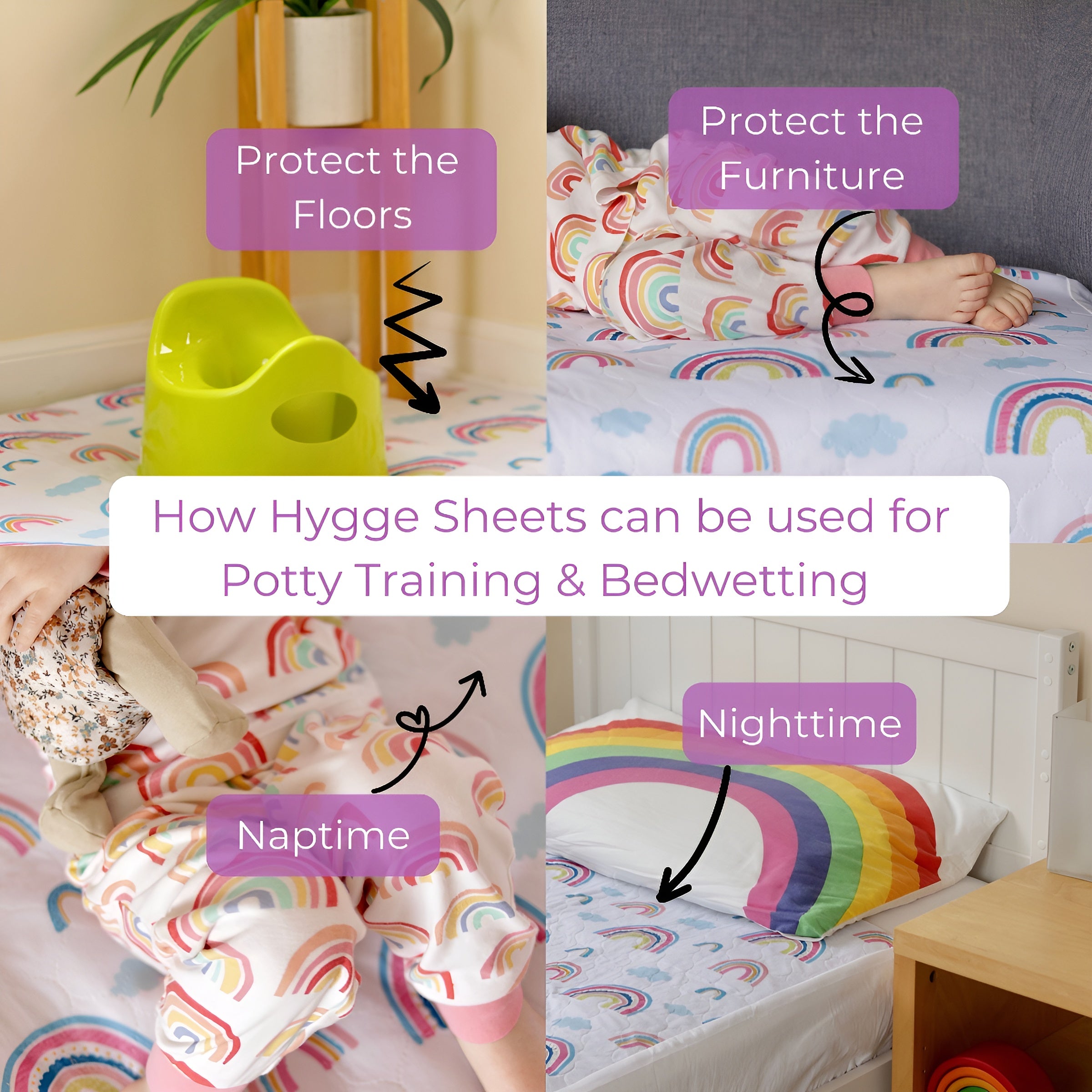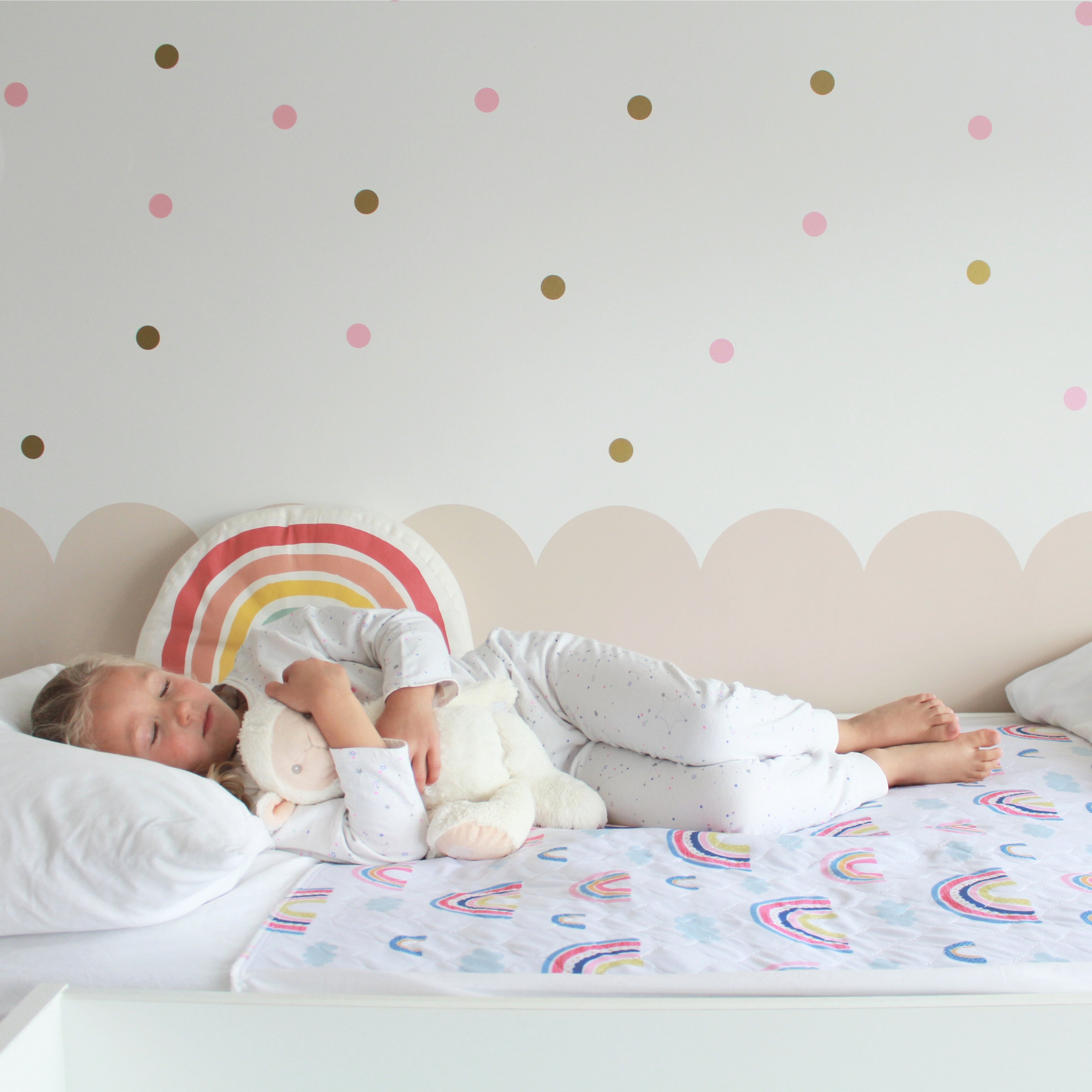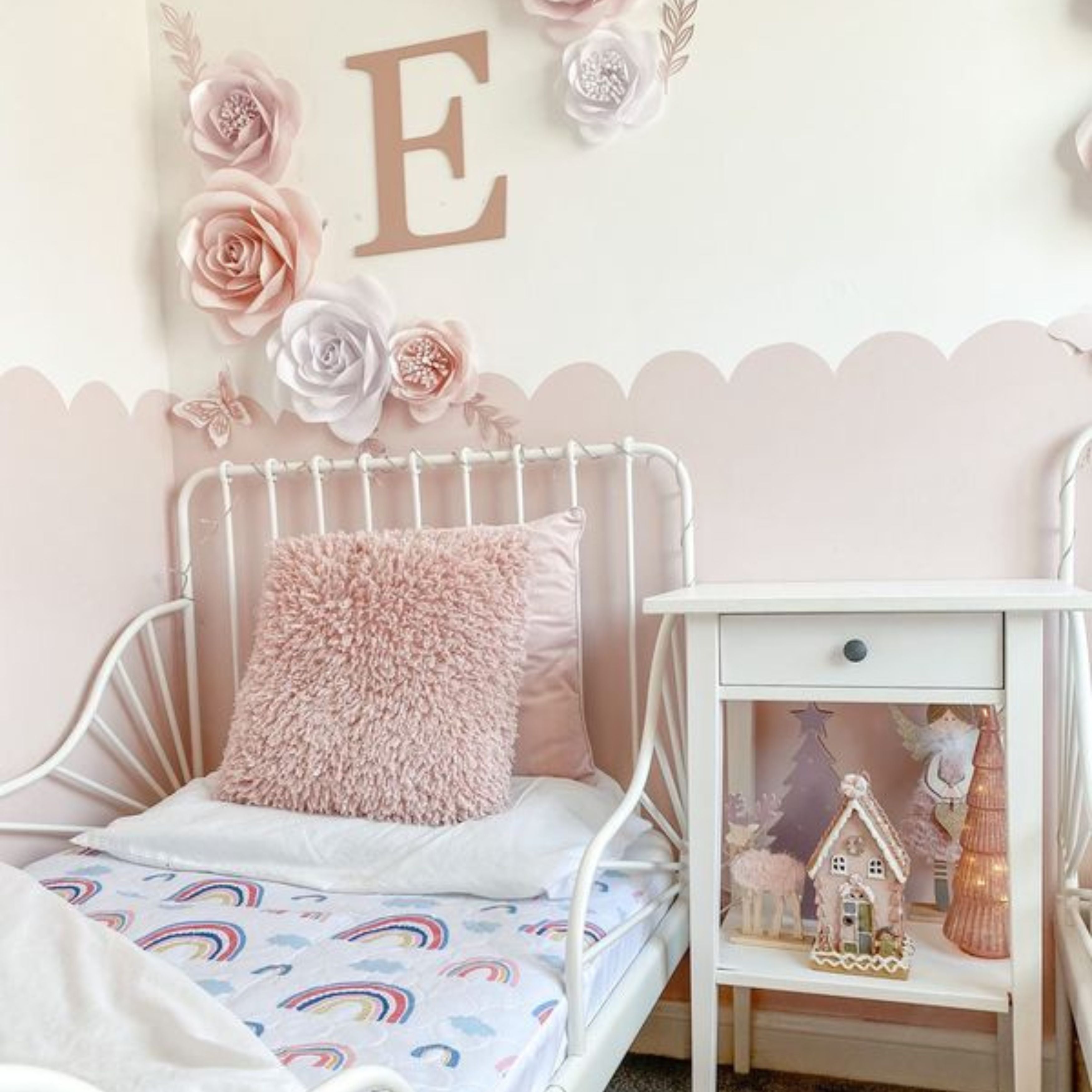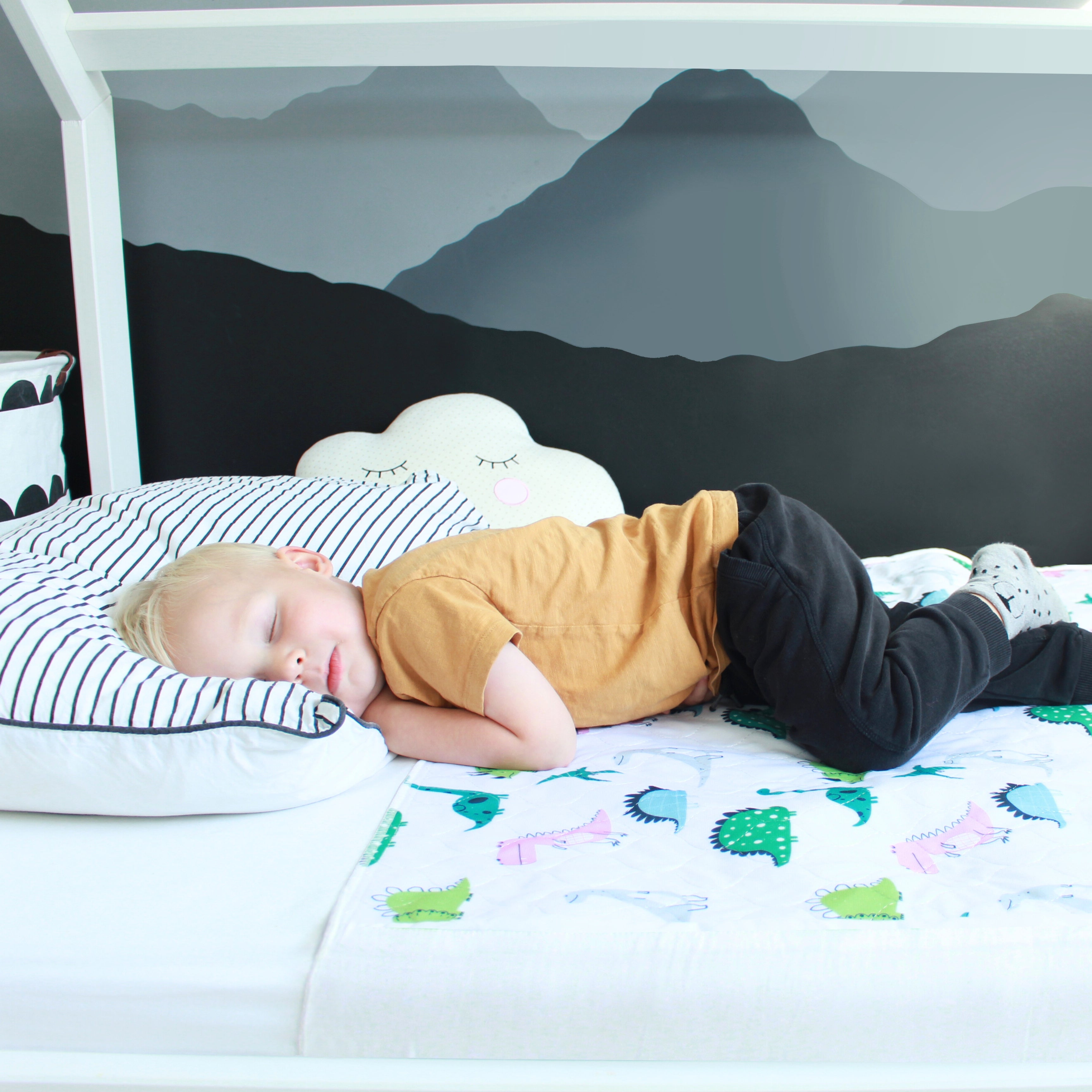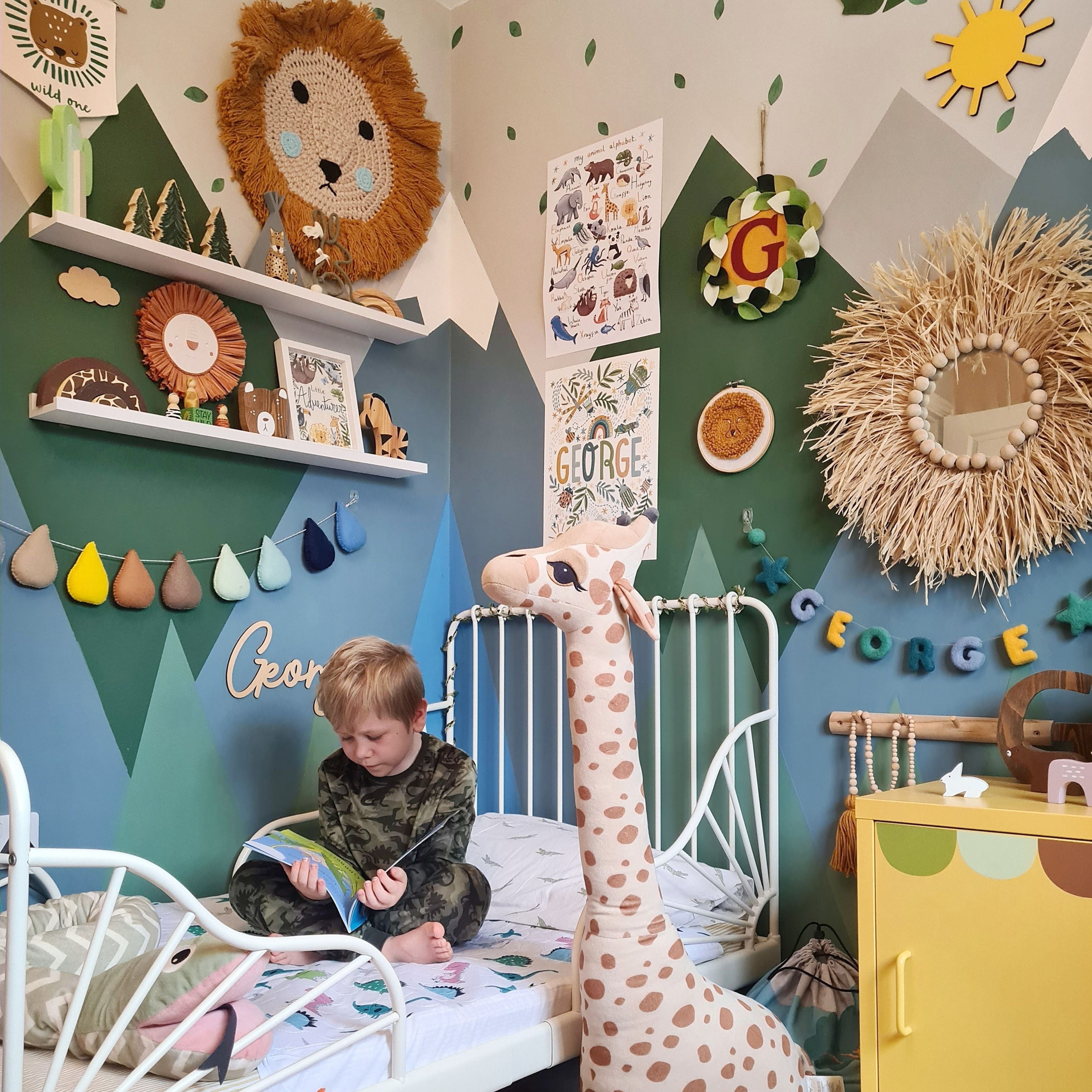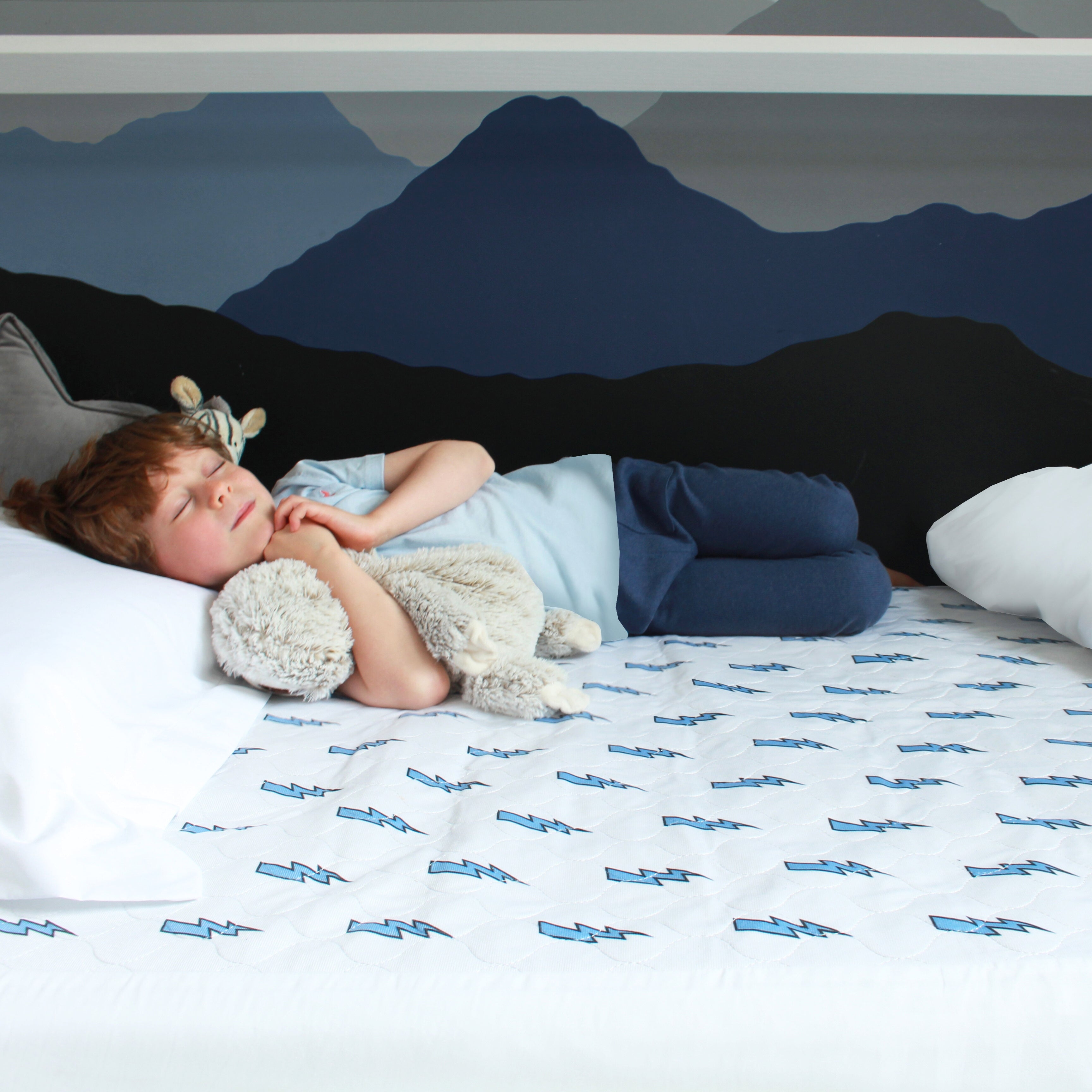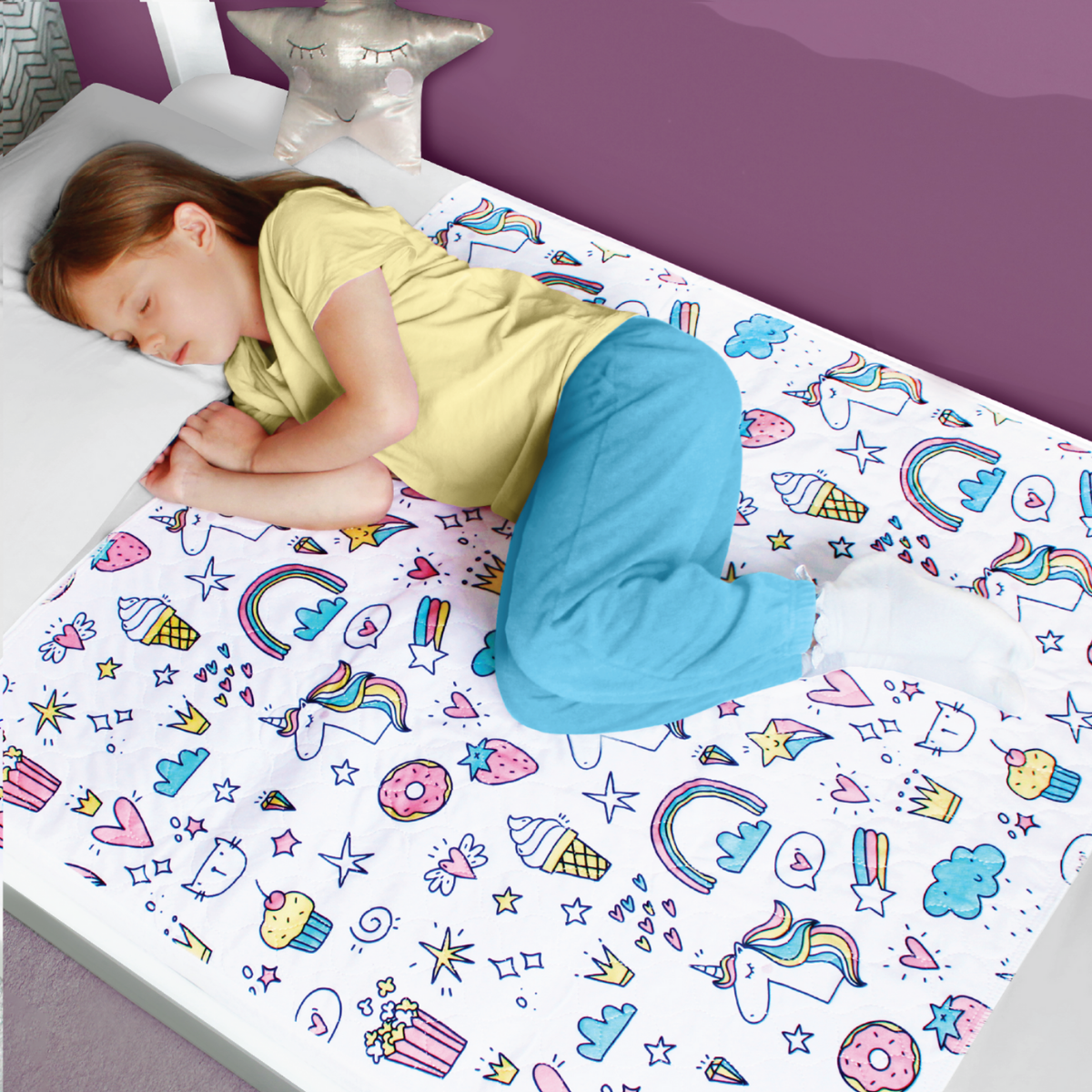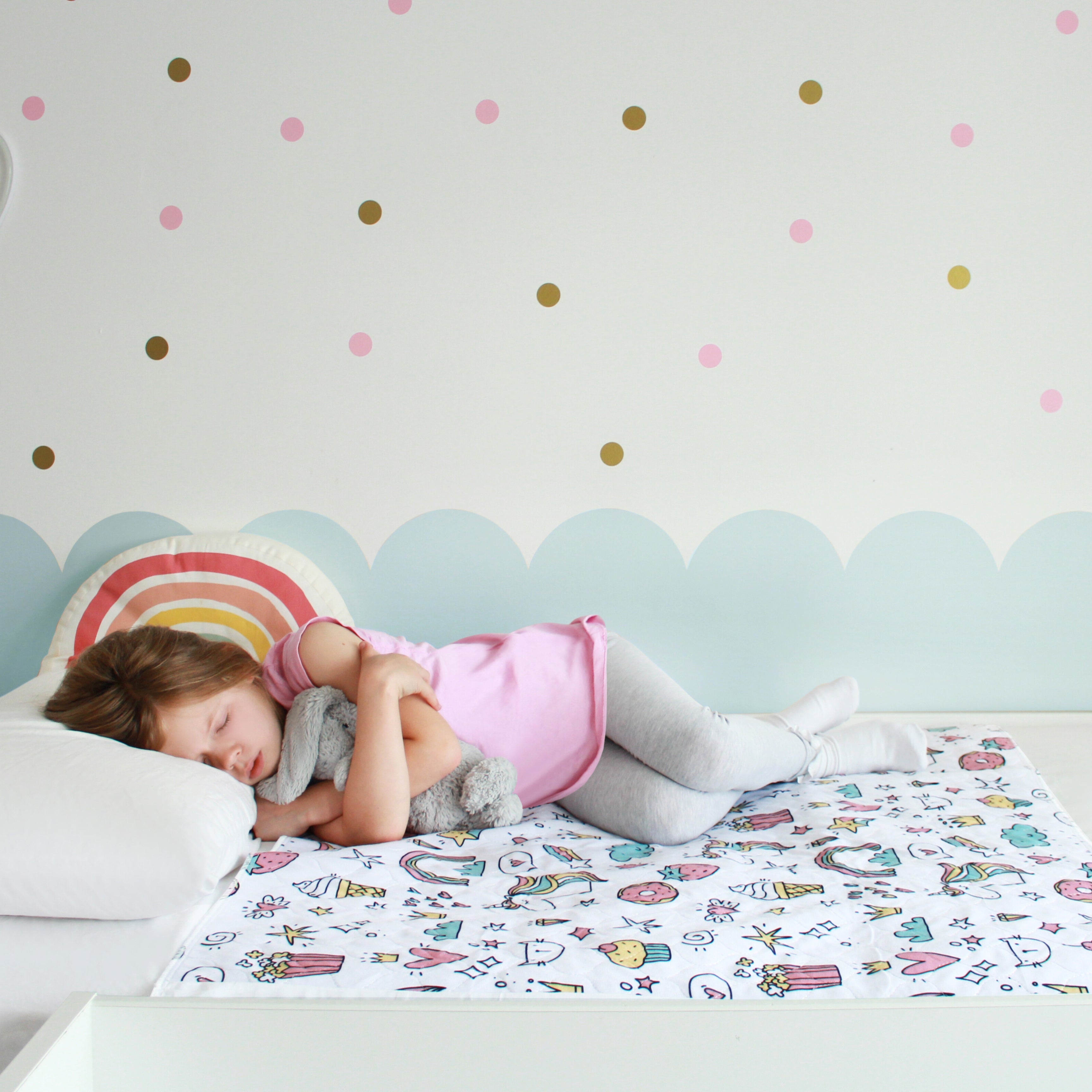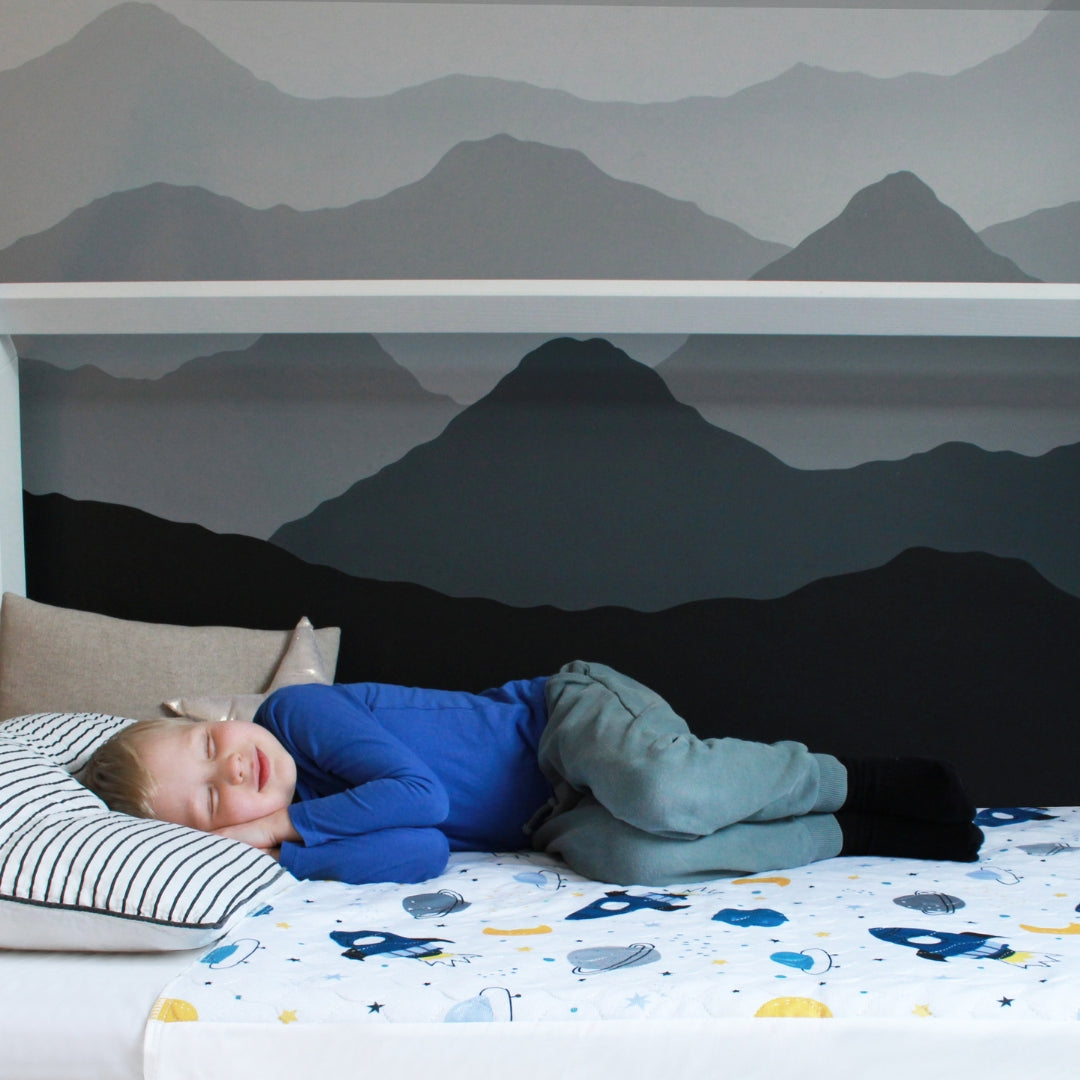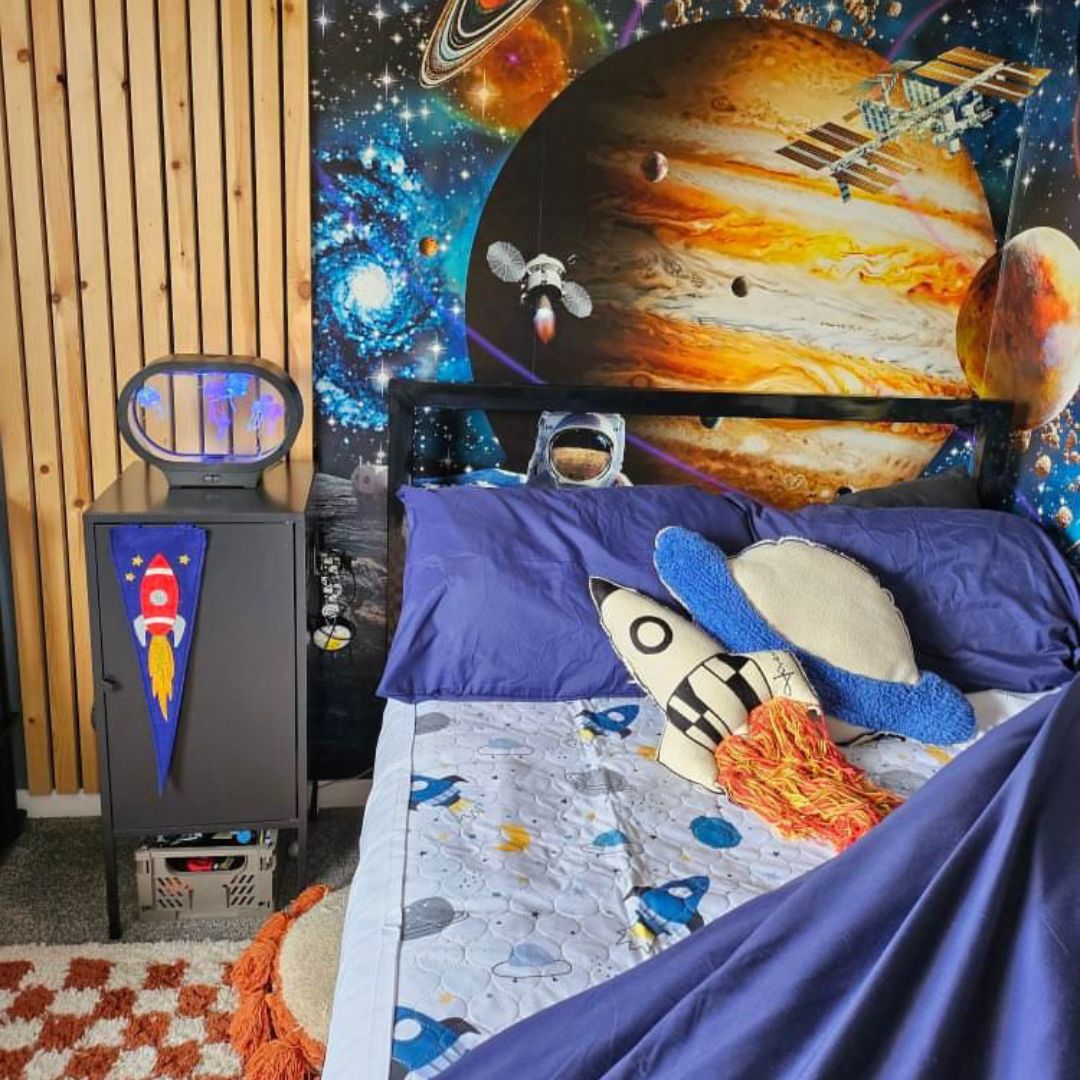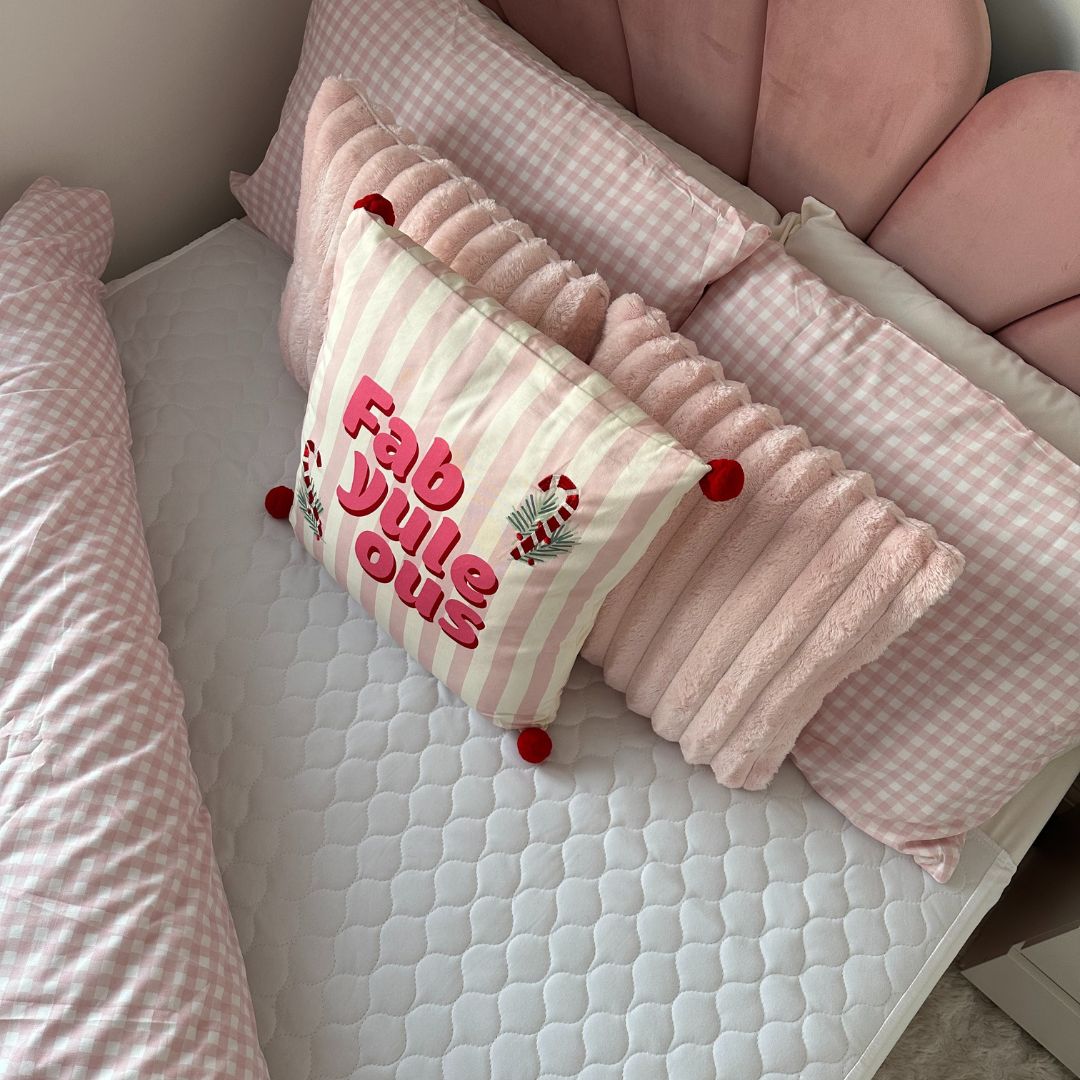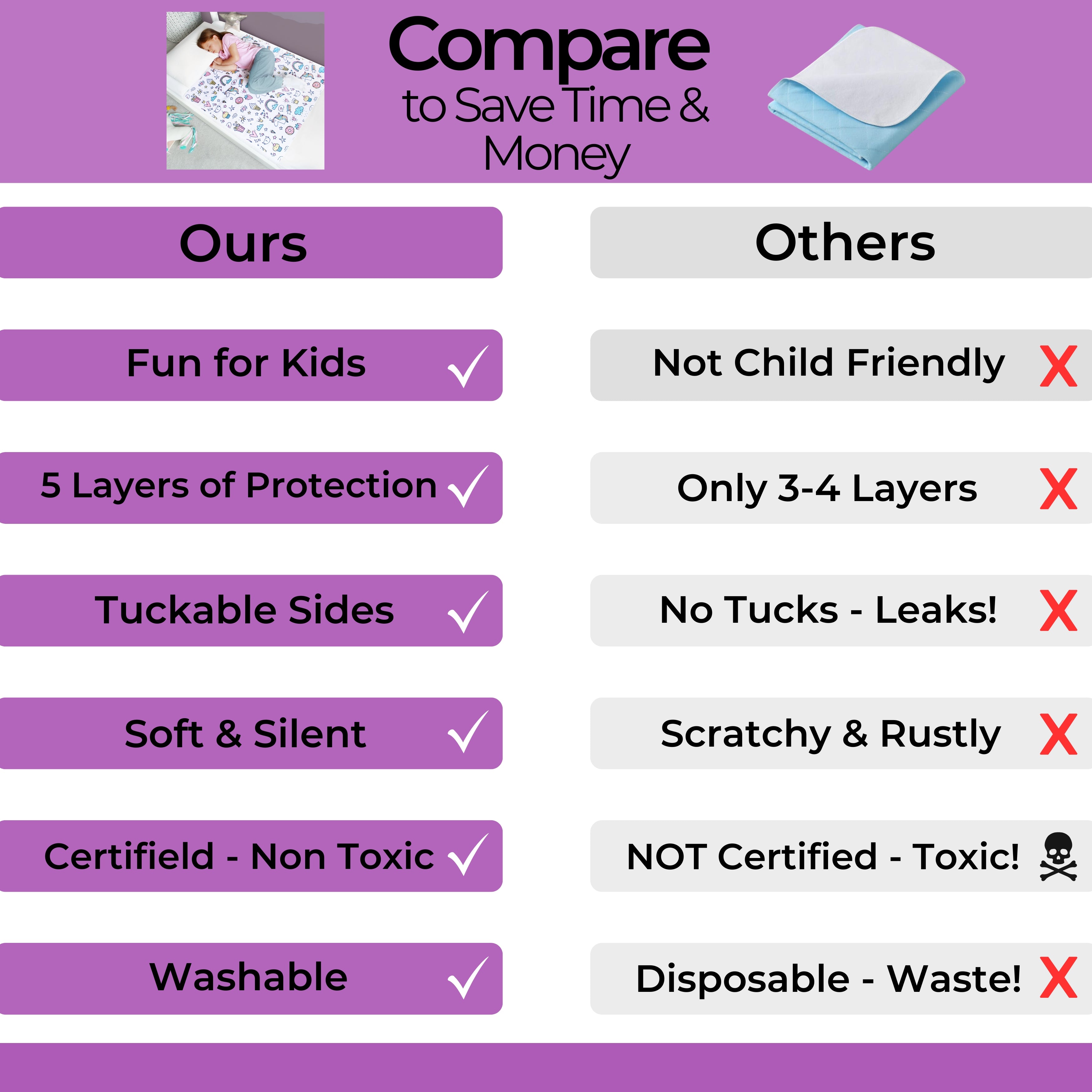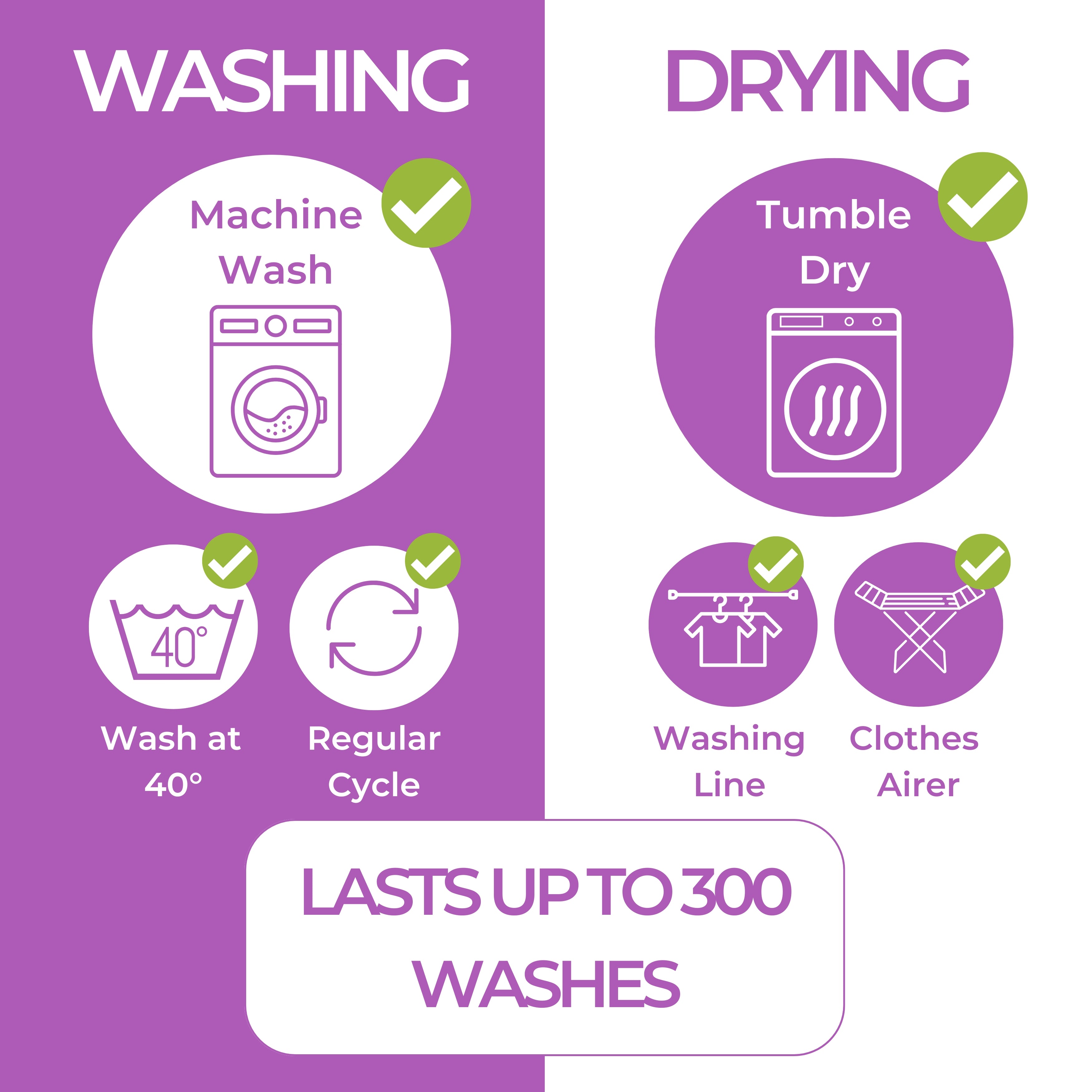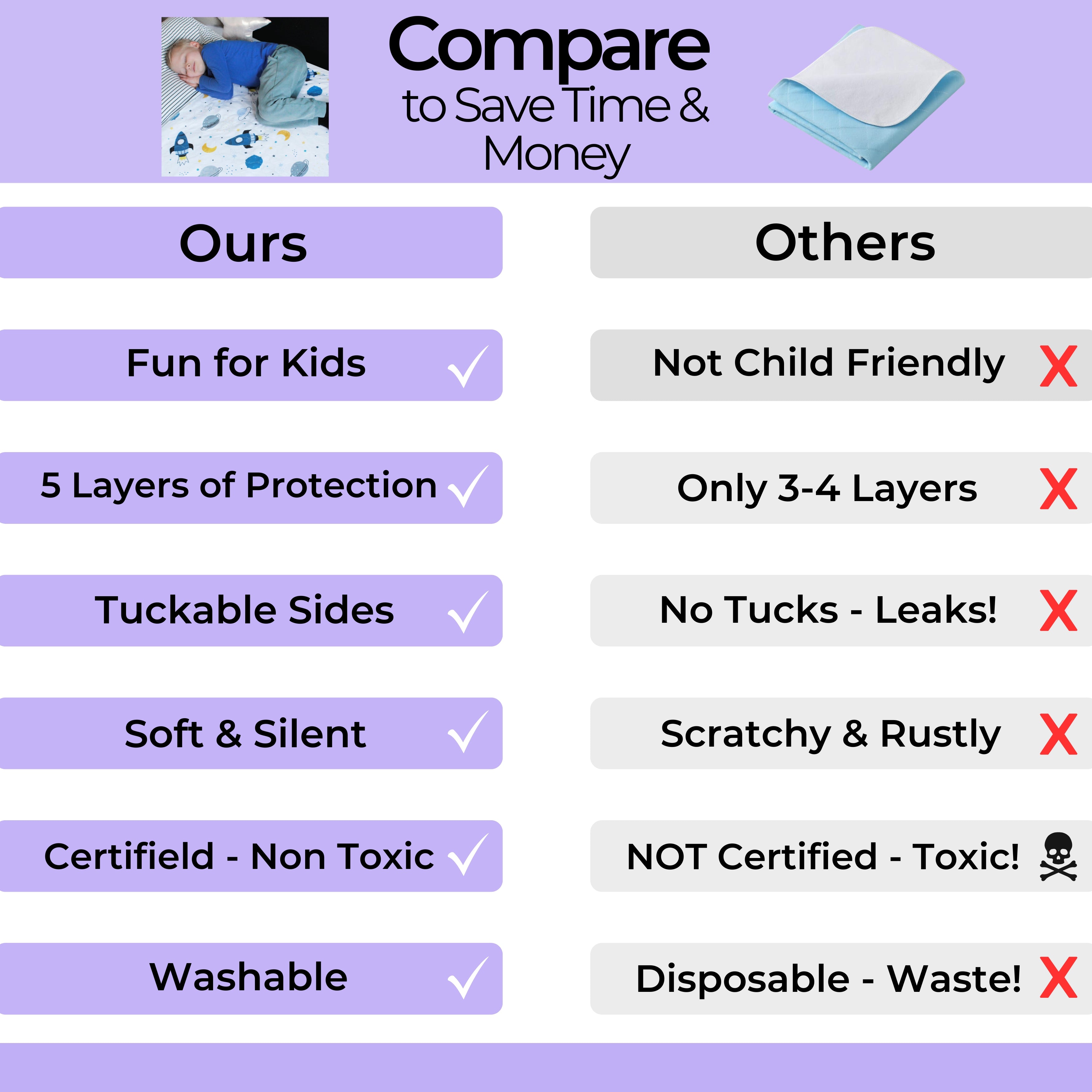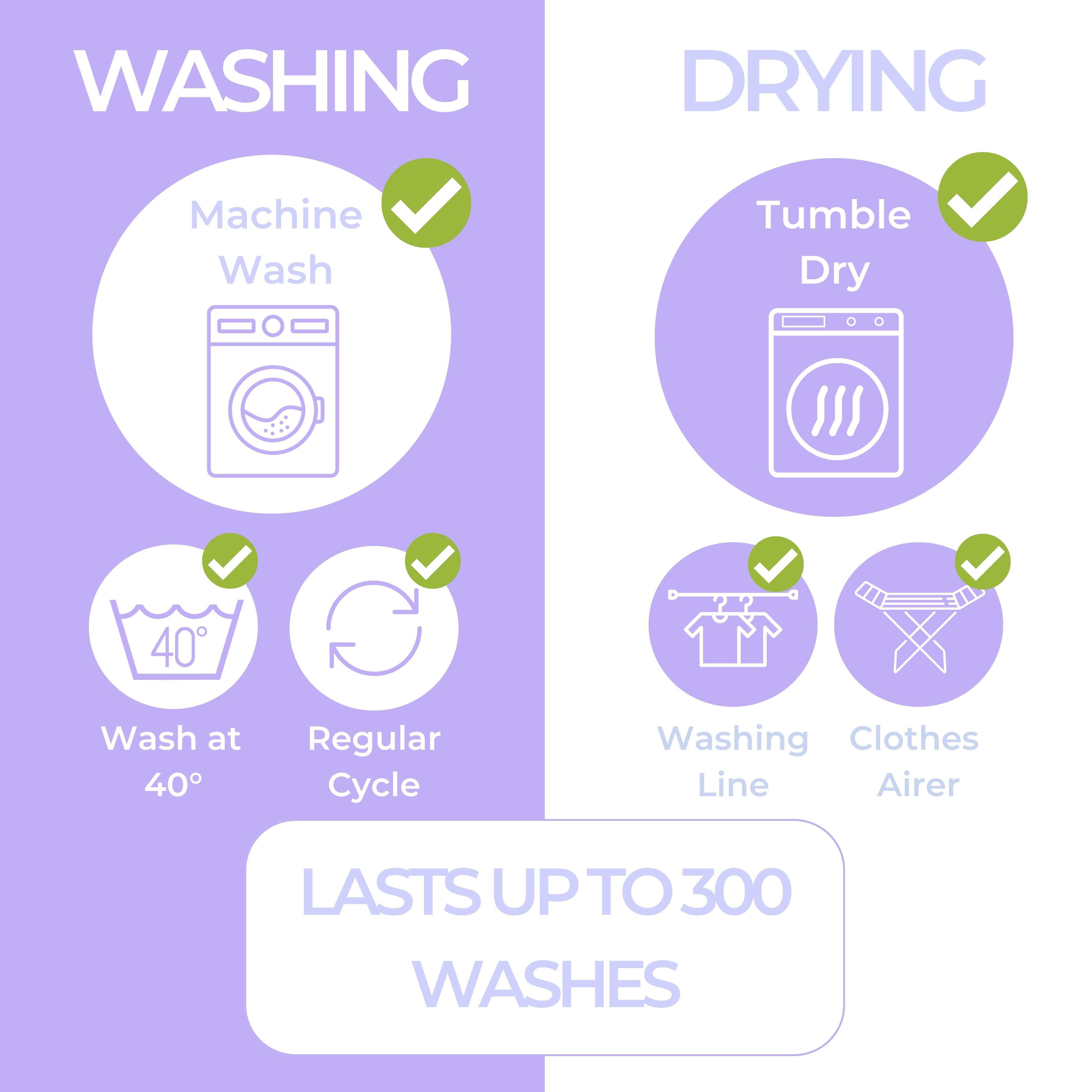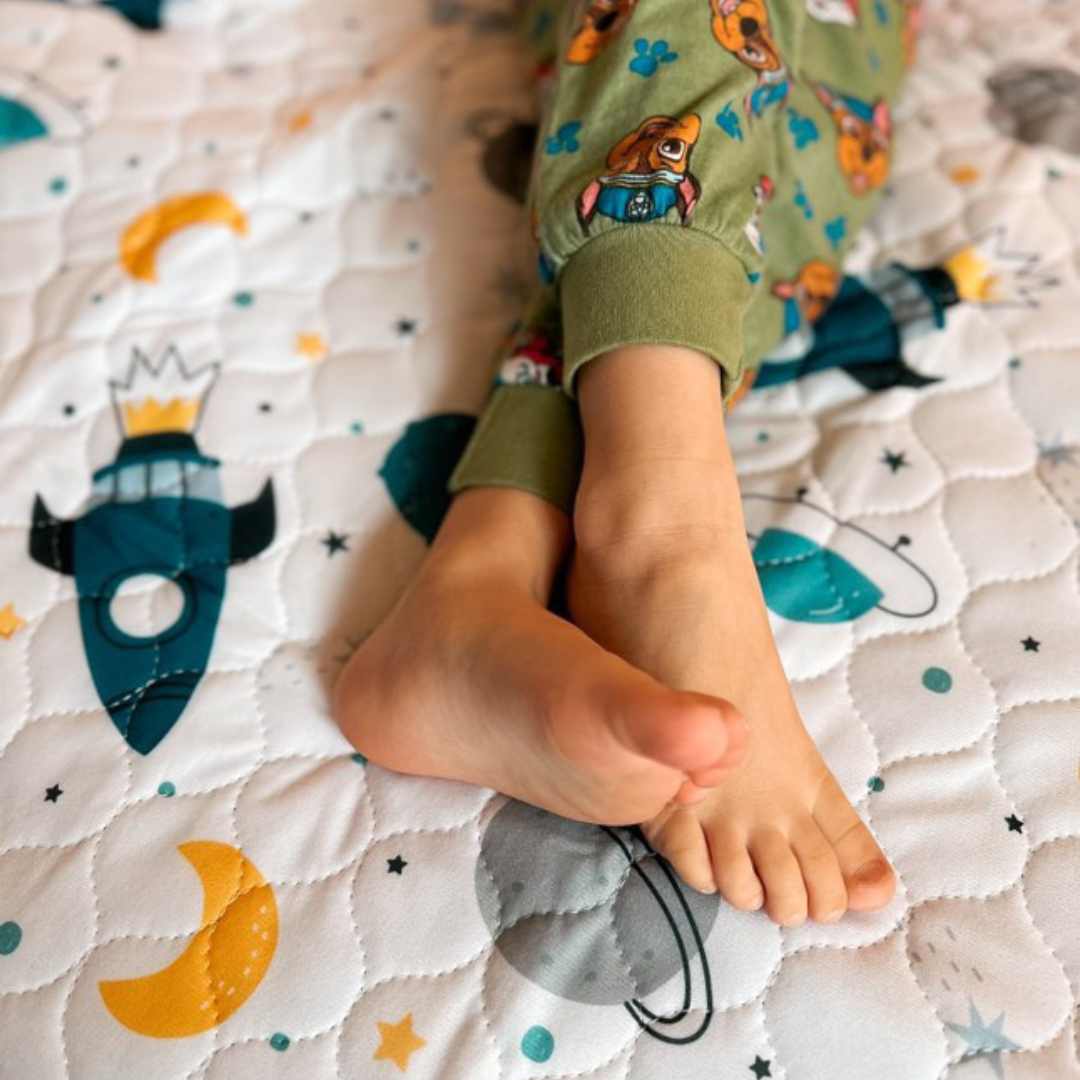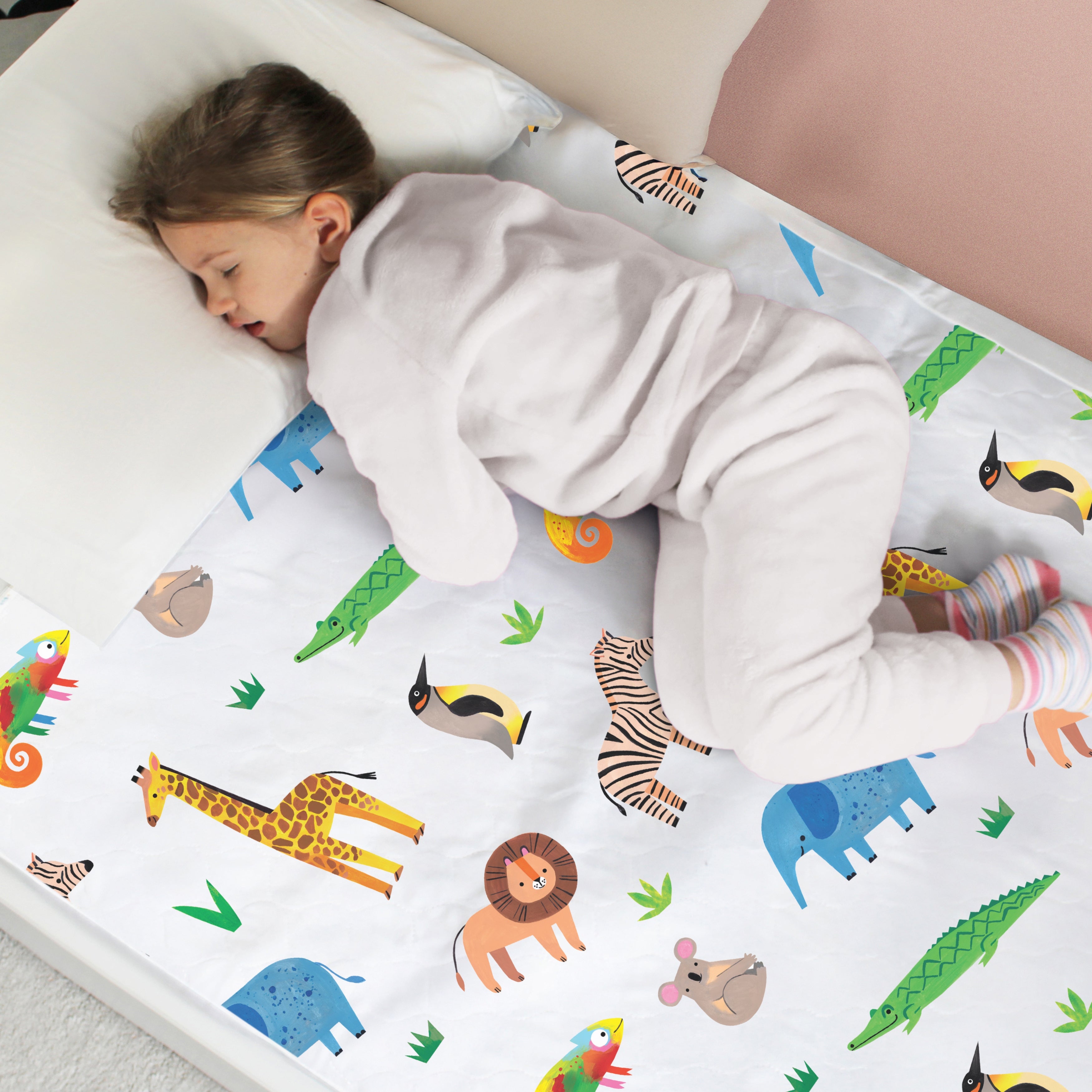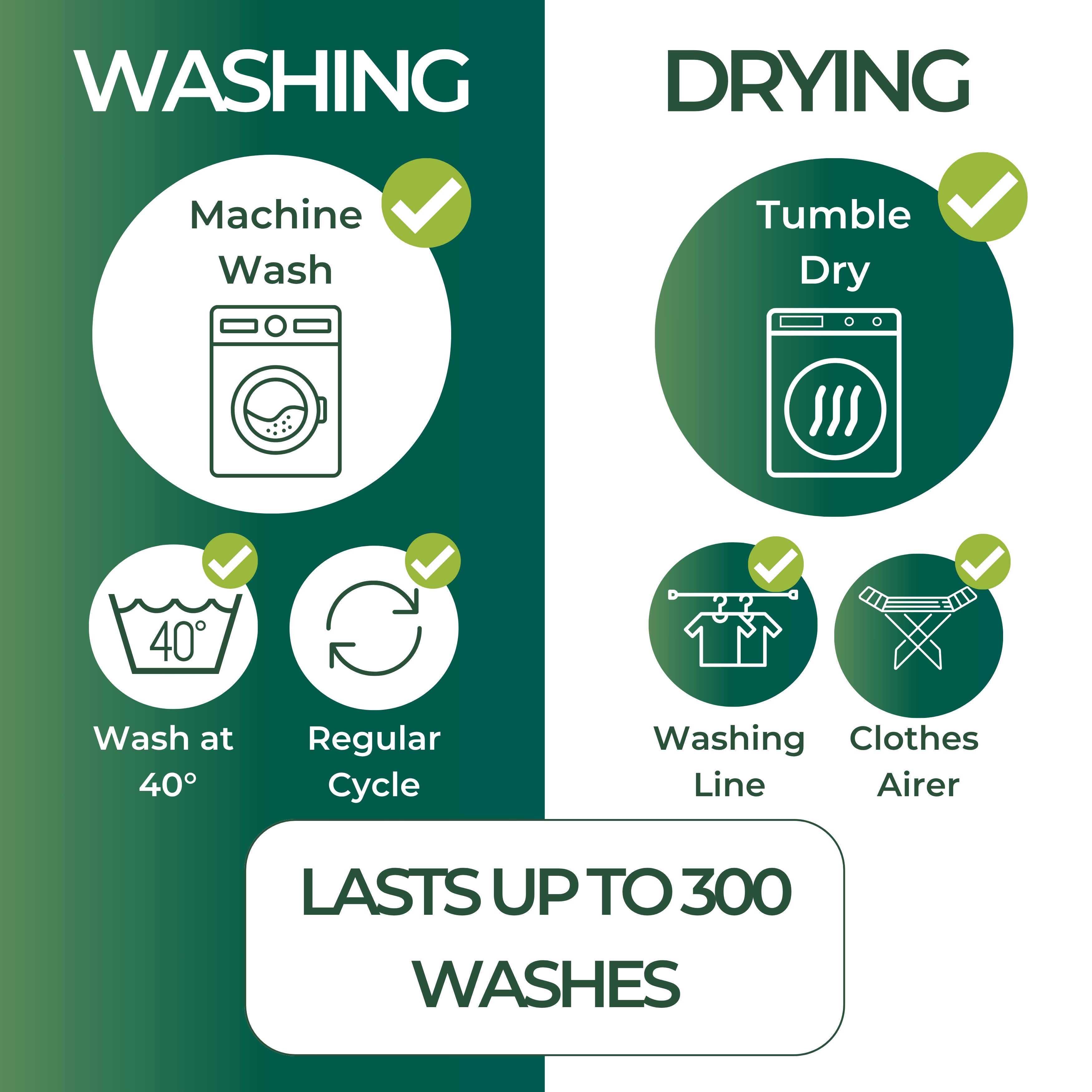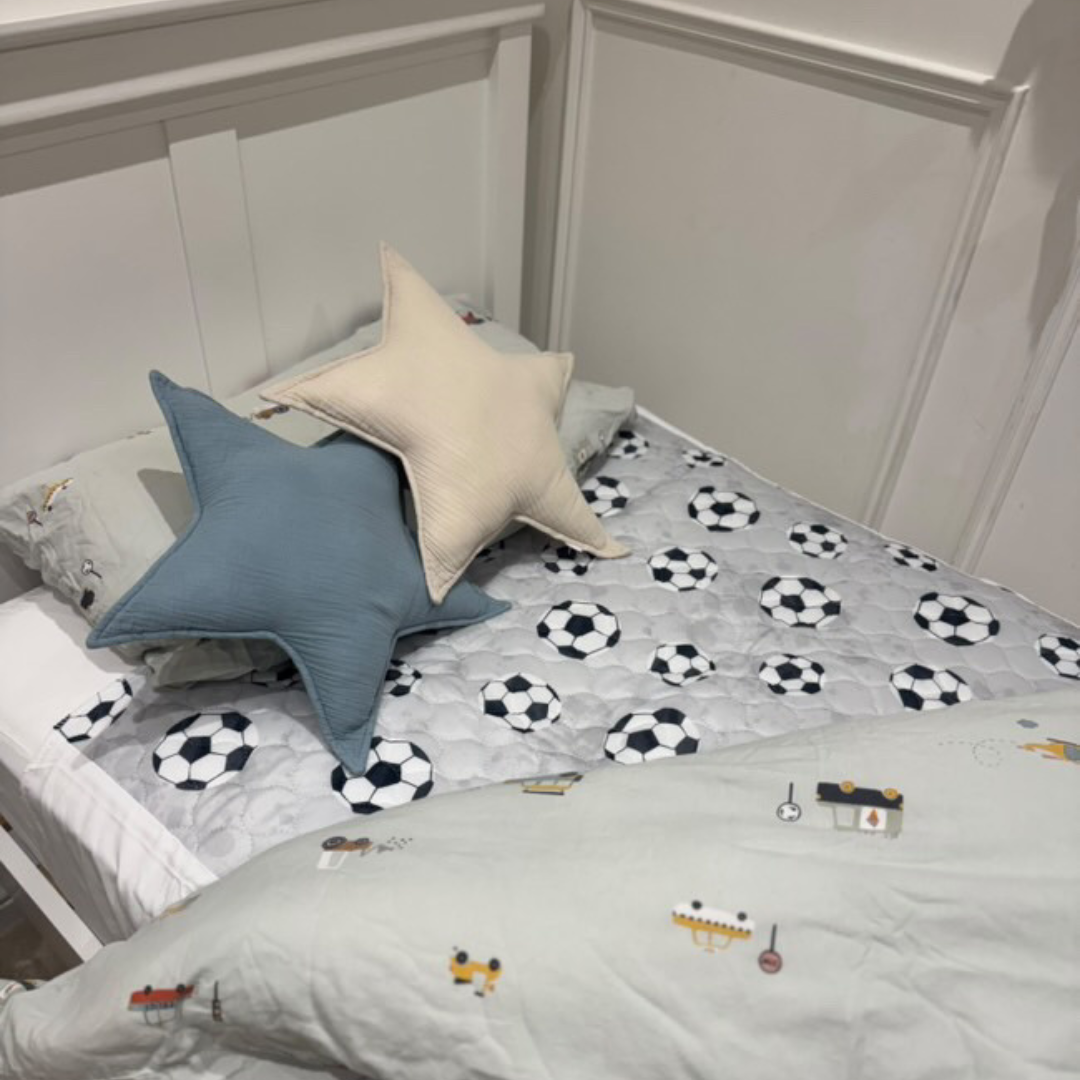Bedwetting is a common concern for many parents of young children. While it can be a frustrating experience, it’s important to remember that bedwetting is a normal part of childhood development. In Helping Your 6-Year-Old Stop Bedwetting: Practical Advice, we provide effective strategies and tips to help your child overcome this challenge. With patience and understanding, you can support your child in achieving dry nights and building their confidence.
Understanding Why Children Wet the Bed
Bedwetting, or nocturnal enuresis, is a common issue that affects many children. According to our friends at ERIC Charity, the UK’s leading children's bladder and bowel charity, it can stem from various factors, including constipation, daytime toileting issues, delayed bladder maturity, deep sleep patterns, genetic predisposition, and hormonal imbalances.
Understanding these causes can help parents approach the issue with empathy and support, ensuring the child does not feel embarrassed or ashamed. Your child’s bladder is a muscle, and just like when exercising the body, it may need training too. Talking to your child and explaining this may help.

How to Help a 6-Year-Old Stop Bedwetting
Assisting a 6-year-old with bedwetting involves patience and a consistent routine. It's crucial to reassure your child that bedwetting is common and not their fault. Establishing a bedtime routine that includes using the bathroom before bed and limiting fluid intake in the evening can be helpful. Waterproof mattress protectors like Hygge Sheets make washing easier and reduce stress for both the child and parents. As a mum of two girls myself, I know that parenting is busy and stressful enough, so we hope that Hygge Sheets can help you.
According to ERIC, a bedwetting alarm can be effective. However, it's important to first rule out other contributing factors such as constipation, insufficient daytime hydration, or urinary tract infections. If you choose to use a bedwetting alarm, it works by waking the child at the first sign of wetness. Consistency is key—using the alarm for at least four weeks and encouraging your child to practice setting it off before bed can help them know what to expect.
Strategies for Overcoming Bedwetting in Older Children
Older children may face additional social challenges due to bedwetting. Open communication and avoiding punishment are essential. In most cases, your child is not aware they are wetting the bed, and it isn’t due to laziness.
Maintaining a regular daytime toileting schedule and ensuring the child stays hydrated can help. Regular drinking and voiding (weeing!) during the day strengthens and stretches the bladder, making it more capable of holding urine at night.
Additionally, older children may benefit from a more detailed assessment to identify any underlying issues contributing to bedwetting, such as constipation or bladder overactivity. In the UK, you can visit your GP for support once your child turns five.
At What Age Should Bedwetting Stop?
The age at which bedwetting stops varies. Most children stop bedwetting by the age of 5 to 7. However, it is not unusual for some children to continue experiencing bedwetting into their preteen years. If bedwetting persists beyond the age of five, consulting a healthcare professional can help rule out any underlying medical conditions and discuss appropriate interventions. ERIC recommends keeping a nighttime diary and discussing bladder and bowel habits with a healthcare professional to help identify the main reasons for bedwetting and guide effective treatment options.
Natural Ways to Stop Bedwetting
Natural methods to reduce bedwetting include ensuring the child stays hydrated during the day to prevent excessive thirst in the evening. Bladder-friendly drinks, such as water-based drinks, can be beneficial. Encouraging pelvic floor exercises can also help strengthen bladder control. Creating a calm, stress-free bedtime environment is vital for better sleep and reducing bedwetting incidents.
Additionally, maintaining regular bowel movements is crucial, as constipation can worsen bedwetting. A full bowel can press on the bladder, increasing the likelihood of accidents. According to Stop Bedwetting, addressing underlying issues like constipation or daytime bladder problems is essential before focusing on nighttime wetting.
Tips for Stopping Nighttime Bedwetting
Combining various strategies can effectively stop nighttime bedwetting. Regular bathroom breaks throughout the day and especially before bedtime are essential. Implementing a reward system for daytime drinking, frequent toilet use, and going to the toilet before bed can motivate the child and build their confidence. Using kids’ mattress protectors like Hygge Sheets provides a sense of security and minimises nighttime disruptions.
If bedwetting alarms are part of your approach, ERIC advises that consistent use, along with positive reinforcement, can gradually lead to dry nights. Additionally, a nightlight can help children feel more comfortable getting up to use the toilet if needed.
How to Aid Bedwetting Training and Overcome Challenges
Bedwetting can be a challenging phase for both children and parents, but with the right approach, it can be managed effectively. Tailoring bedwetting training to each child’s needs is crucial. Utilising tools like bedwetting alarms, which detect moisture and wake the child, can help condition their brain to recognise the need to urinate at night. Keeping a bedwetting diary to track patterns and triggers is also beneficial. Involving your child in the process and addressing emotional factors like stress and anxiety can boost their confidence and motivation.
Maintaining regular bowel movements is important, as constipation can worsen bedwetting. According to Stop Bedwetting, ensuring the child is motivated and the family is prepared is crucial for success. If alarms are not effective, medications like desmopressin, which reduce urine production at night, may be considered for short-term use if advised by your GP. With patience and support, parents can help their child overcome bedwetting challenges.
Conclusion
Bedwetting is a common issue affecting many children at different stages of development. Understanding the causes and implementing supportive strategies can help children and parents navigate this challenge effectively. By fostering a compassionate and patient approach, parents can help their children overcome bedwetting and build confidence in managing their toileting habits.
For more detailed information and resources, consider visiting ERIC and Stop Bedwetting. These organisations provide valuable insights and practical advice to support families dealing with bedwetting.
Follow our Instagram page for more helpful tips and advice.
Take care,
Catherine x











